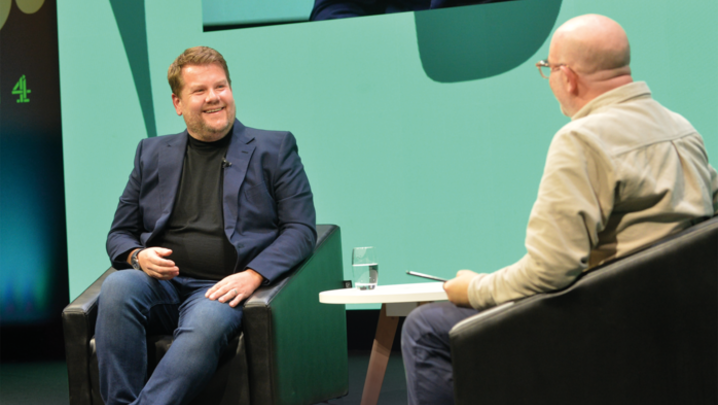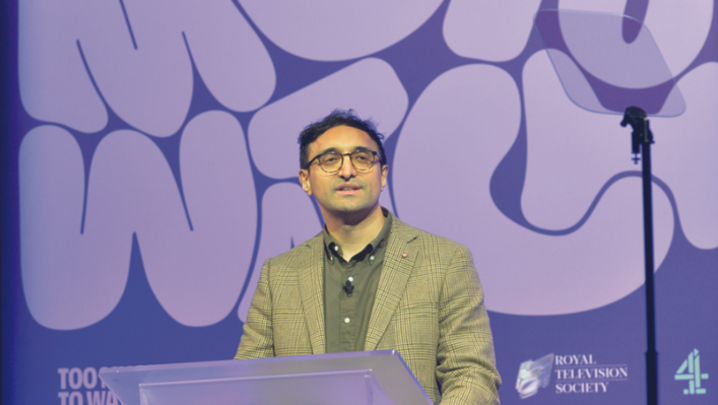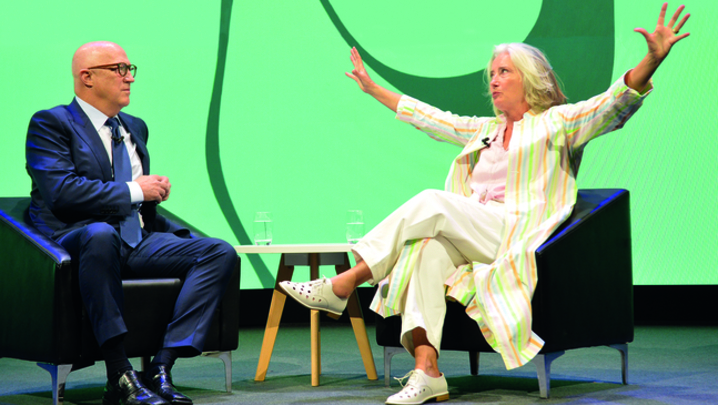All producers need to reduce their carbon footprints now, says natural history film-maker Wendy Darke.
There was a moment when I realised that everything had changed. I’d sent a team to the Arctic to attempt to paddle the world’s largest fjord system two months earlier than would have been possible at the start of my career – because all the ice had melted.
Over 30 years, I’ve had a front-row seat as our rapidly changing climate pushes the natural world to the brink of collapse.
In the late 1980s, I researched the massive corals called Porites on the Great Barrier Reef for my PhD in marine biology, after which I spent more than 25 years at the BBC Natural History Unit. For the last four of these I ran the unit.
Now, I have my own Bristol-based production company, True to Nature.
The climate emergency poses challenges for everybody in the television industry. How do we balance entertainment with raising awareness? How do we engage viewers with such a tough topic? How do we make sure we don’t make the problem worse?
At True to Nature, we aim to create premium content that puts conservation, the climate and the ever-increasing list of endangered species at the heart of the narrative.
In our recent series Expedition with Steve Backshall, Steve and the team embarked on 10 expeditions to different parts of the globe. The aim was to venture into uncharted territory in pursuit of new discoveries and world firsts.
The series, designed to appeal to a mainstream audience, has been sold in almost 150 territories and will achieve a global reach of 500 million.
Steve takes on epic physical challenges. They range from free diving in underground river systems and descending deep into the caves of the Mayan underworld to kayaking Himalayan white water. He scales previously unclimbed Arctic peaks.
"Stories about wildlife have a unique power to touch people’s hearts"
Our aim is to engage the viewer emotionally with nail-biting action while simultaneously building an appreciation that our natural world is at risk.
In that Arctic expedition, Steve and the team kayaked through the Scoresbysund fjord in Greenland in June. What should have been a white blanket of solid sea ice was a huge expanse of dark blue water.
With the Arctic warming at twice the rate of the rest of the planet, the sea ice had melted earlier in that year than ever before in human history.
We highlighted the impact of climate change on the local ecosystem via an encounter with a hungry polar bear. With their sea-ice hunting grounds melting, polar bears are forced to take every opportunity to find food and, in this case, it was the team that the creature was stalking. Our editorial approach to all our films is to capture real people and animals in real places. The aim is to discover more about our planet and ourselves.
As a company, it is important for us to reduce our environmental impact. Expedition was UKTV’s first commission to be certified as a carbon-neutral production by Natural Capital Partners, which provides guidelines on environmental initiatives.
The series offset its carbon emissions by contributing to funding a REDD+ (Reduced Emissions from Deforestation and Degradation) project in the Rimba Raya Biodiversity Reserve in Kalimantan, Indonesia. This certification really matters for the team at True to Nature. We’re committed to it for all future productions.
I hope this is something that will grow throughout our industry.
Viewers want to be entertained, not hectored. But I also believe that we have a responsibility, whether in public-sector or commercial broadcasting, to air uncomfortable truths – and that we can do so in ways that keep our audiences engaged.
If there is one thing I have learned during my career, it is that stories about wildlife have a unique power to touch people’s hearts and to provide a clear window into issues that can otherwise feel too abstract.
Our aspiration at True To Nature is to use great storytelling to build life-long relations between people and the natural world.
Wendy Darke is founder and CEO of True To Nature.







